I, like most other travellers to Thailand, was very keen to see some beautiful elephants while travelling the country. There is something about these animals that’s just magical; they’re so peaceful and majestic, and seeing one in the flesh is a really awe-inspiring experience.
But honestly, I’d kind of written off sanctuaries. I’d heard too many stories about them not actually being sanctuaries, many of them still using chains and whips to train the animals and encouraging them to behave unnaturally. And that’s true – for a lot of elephant sanctuaries around Chiang Mai and elsewhere in Thailand and South East Asia.
A lot of ‘sanctuaries’ are now aware that tourists don’t want to cause harm to elephants by riding them, but they still make the elephants do unnatural things and ‘perform a show’ for the tourists. And many sanctuaries still chain the elephants at night and keep them in some form of captivity. While yes, they’re not performing any tricks or being forced to have humans on their backs at these places, they’re still victims of harm.
But I’m very happy to say that Elephant Nature Park is different. While doing my research wondering how to ethically see elephants near Chiang Mai, Elephant Nature Park came out tops every time. And the more research I did – the more I spoke to volunteers at the programme and elephant conservationists- I realised the huge benefits that giving money to Elephant Nature Park (and other genuine sanctuaries) has on the elephant’s lives.
Why we should visit sanctuaries
Elephants have sadly always been used in Thailand. First it was the logging trade, which was made illegal in 1989, and then tourists started riding them. I was horrified about how many signs in Thailand and especially Laos are still marketing riding. Elephants have also been used in the past for street begging, which is fortunately now illegal.
Luckily there’s so much more awareness about riding and using elephants now; if you’re still riding elephants in 2019, you must have had your head under a rock for the last five years. If you need reminding, here is a great thorough article about why we shouldn’t ride elephants.
It’s funny, elephants are so revered in Thailand – the national beer is Chang which means elephant, and they’re a feature in many tales and illustrations – but they have also been so abused.
This means that ex-logging elephants and elephants who worked in riding camps who have been liberated are often suffering from various physical and mental health issues (many elephants have PTSD) and can’t survive in the wild.
There is also the issue of there not being enough protected land in Thailand. Although poaching is technically illegal, it does still happen quite a lot. There needs to be a protected park where these elephants can live in safety; but right now, there isn’t. Legitimate sanctuaries, like Elephant Nature Park, are working towards creating this.
So basically, by financially supporting sanctuaries like Elephant Nature Park we support their endeavours to help elephants (which, by the way, are backed up by Save the Elephants Foundation). If no tourists go to their park, they won’t be able to carry on rescuing elephants, meaning that more will stay in the riding camps.
I was scared of accidentally supporting the wrong place, but Elephant Nature Park is completely legit.
The Rehabilitation of Elephants
After a long chat with an elephant conservationist, my perception of elephant sanctuaries did change. Basically, these elephants aren’t wild. They haven’t been wild for a long time and you can’t just take an elephant who’s been a victim of logging or riding and expect it to immediately be able to fend for itself in the wild.
I’d much rather see elephants completely in the wild, but the truth is that it’s not possible for every rescued elephant to be in the wild at the moment. And the sanctuaries that are rescuing them need money to care for them, which comes from the tourists.
So as mentioned, I would so much rather give Elephant Nature Park my money to fund them saving more elephants, rather than them not be funded.
Discover Wildlife mentions how, while rehabilitating elephants is the ultimate goal, it does take some time…
That is no easy job. Asian elephants in captivity become heavily imprinted with the gruelling life imposed on them, and over time it becomes very difficult for the mammals to re-learn the natural behaviour that would enable them to survive in the wild. The task is even harder for young elephants that are born in captivity.
You can read their full article here.
Personally, I still felt a little on edge about touching and feeding elephants, so I didn’t do either – just got a quick photo infront of them. I was more than happy to observe them from afar.
My Day at Elephant Nature Park
I was picked up in a comfy, air-conditioned van at around 8:30 from my hostel. It’s about an hour and a half journey from Chiang Mai to Elephant Nature Park – out of the city and into the more mountainous area (don’t worry, the journey’s not super windy!).
When we got there we were shown to our table, invited to buy coffee (which was just served with plant-based milk!) and after a quick break, we were taken to see our first elephants.
We spent the time walking around the park, learning about different elephants and their stories. Some mahouts were just about to feed the elephants when we walked over, so our group was invited to join in. As mentioned, I didn’t actually feed them but enjoyed watching.
It was a two-way street in terms of whether we interacted with the elephants. Some were keen to see us and approached us – others didn’t look too bothered about interacting, at which point our guide would take us somewhere else. There was no forced atmosphere of anything, which was great. If the elephants wanted to be alone, they were left alone.
We learned so much about elephant conservation which was both fascinating and incredibly sad. Some elephants had stories of being tortured in the logging industry, others had severe PTSD from working at a riding camp.
After a completely vegan lunch, we headed back out in the afternoon sun (it was scorching hot) to observe the elephants bathe. Again, this was completely natural – there is no human bathing at Elephant Nature Park.
We didn’t bathe them, they weren’t unnaturally laid down, and they stayed in there for as long as they wanted. The tourists were told to keep a good distance from the elephants, and when they got out all visitors had to keep back.
After visiting some more elephants, we were taken back up to the main observation area, de-briefed on the day and then we got back in our transfer to Chiang Mai.
What makes Elephant Nature Park legit?
- It is supported by Save the Elephants Foundation and is one of the only sanctuaries in Thailand to be.
- Contact with the elephants is very minimal; tourists can feed the elephants and are able to get a photo with some. Bathing has been stopped, which I think is very good as elephants are more than capable of bathing themselves. Elephant Nature Park stopped this because they do put the elephants first and realised that if they had hopes of releasing some into the wild they needed to integrate natural bathing.
- The elephants have been rescued from riding camps and the logging industries. They all have their own stories, some of which were heartbreaking. I could tell how much my guide cared about the elephants, from the way he spoke about all of the different creatures and their personalities, and the disregard he had for the riding camps, the logging industry and elephant poaching.
- There are absolutely no chains or whipping and no signs of elephant distress. A few elephants suffering severe physical and mental health problems are kept in large enclosures; either because they could be dangerous to the other animals living there or they need to be kept under surveillance. The mahouts all have hopes to release these elephants into the main park, and the majority of elephants are free to roam around the park.
- It’s all very natural; there’s no forced bathing or forced anything – tourists are invited simply to observe. The only interaction tourists have is feeding; although, as elephants eat throughout the day, I saw them feeding themselves plenty of times as well.
- Elephants here, of course, get comprehensive veterinary care.
- They want to release any elephants that they can back into the wild. It’s a long process for elephants born into the logging industry or riding camps, but some elephants do have a chance – one in particular is Hope, who was born in the wild but who lost his mother to poachers at a very young age. He wouldn’t have been able to survive alone, and was taken to the sanctuary by people who were observing him where he was given the correct formula and the closest thing to a mother’s care.
- They don’t just rescue elephants; they have a dog sanctuary and they save water buffalo from slaughterhouses which I think is so amazing. They also don’t serve meat and as far as I was aware the only non-vegan food on site were some cookies in the snack shop. Even the coffee is just made with plant milk!
Do I have any complaints about Elephant Nature Park?
Being completely honest, I’d cut the feeding for tourists. I’m pretty sure just feeding them doesn’t harm the elephants, but it doesn’t help them become less domesticated, plus I’m not sure about how the elephants find being fed by different faces all the time.
That being said, a lot of the time the elephants do feed themselves.
Otherwise, it was very very good. As mentioned, I was really scared of supporting the wrong kind of company, but I can attest that Elephant Nature Park is ethical and definitely a legitimate sanctuary.
But! While I did love my day at Elephant Nature Park, if I was to return to Chiang Mai, I would do a slightly different elephant experience.
There are some smaller projects that conserve elephants directly in the wild. Tourists are invited to stay at a local homestay and then do a ‘jungle walk’ to see the elephants. I don’t think that these elephants are as handicapped as many at Elephant Nature Park, who take in many blind, sick and traumatised elephants, so they can survive better in the wild.
I would love to support these projects as well because I think they’re doing a great job and are not yet as well known as Elephant Nature Park.
These tours do require a minimum of one night, which I unfortunately didn’t have during my Chiang Mai itinerary. But I definitely want to return and spend a night at one of these conservation projects.
How to See Elephants Ethically in Chiang Mai
SO, the long and short of this post is – if you want to see elephants near Chiang Mai, go to Elephant Nature Park or one of these smaller conservation projects. Don’t go to any other sanctuaries.
I’m even talking about Elephant Jungle Sanctuary here, which is another famous ‘sanctuary’ which many tourists visit when Elephant Nature Park is booked up. It seems like a sanctuary on the surface, but it has quite a few 1* reviews and comments about how elephants are actually chained and whipped behind the scenes. They also do forced bathing. Plus, Elephant Jungle Sanctuary in Phuket is owned by the same company and they’re really not a good ‘sanctuary’. Read more about it here.
So yes, do Elephant Nature Park (and make sure you book in advance – I booked two weeks before I went and only the half-day option was left), one of these integration programmes, or don’t see elephants at all. It’s the only way to protect these gentle giants and support the Save the Elephants foundation. As tourists, we vote with our dollar – so don’t vote for anywhere unethical. The elephants need our help – do the right thing!
If you’re travelling elsewhere in Thailand or South East Asia (or the Indian subcontinent or Africa!), there are some other ethical sanctuary options – see the list of ethical elephant sanctuaries on Responsible Travel by clicking here.
Book Elephant Nature Park here.
If you’ve enjoyed this post, please share it or follow me on Instagram and Facebook!

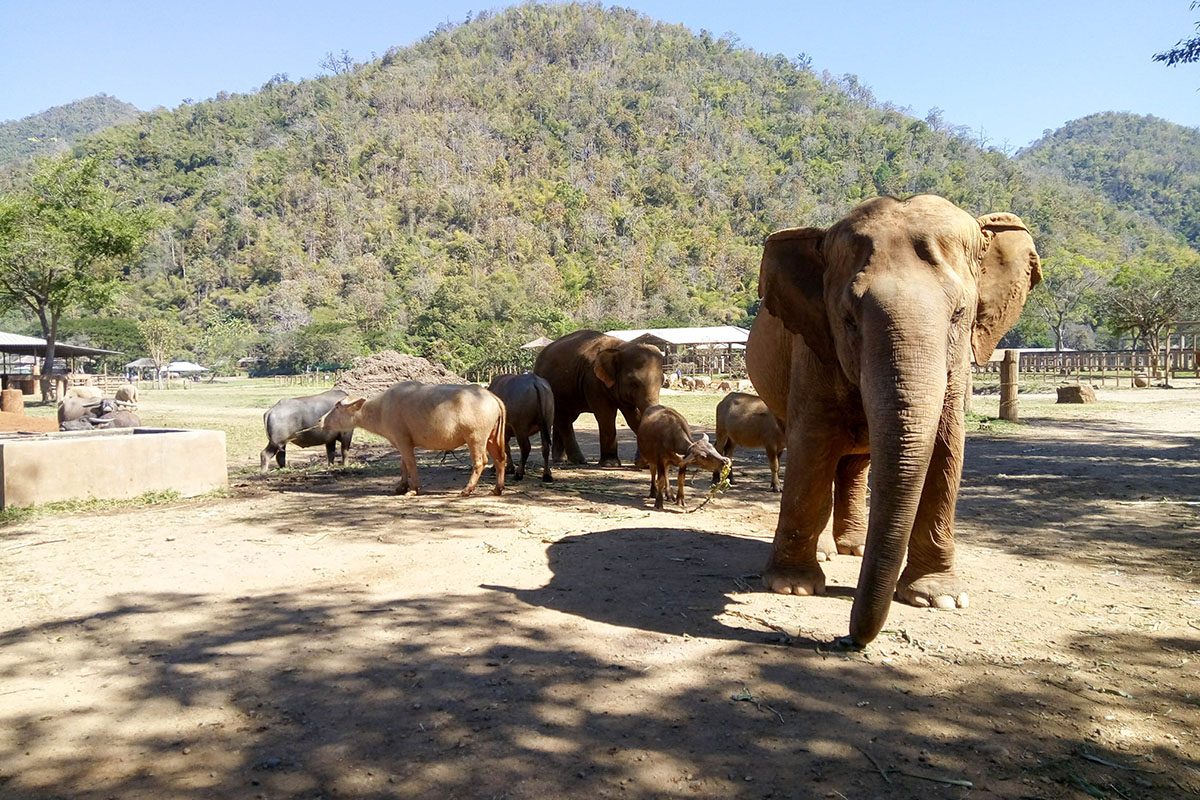
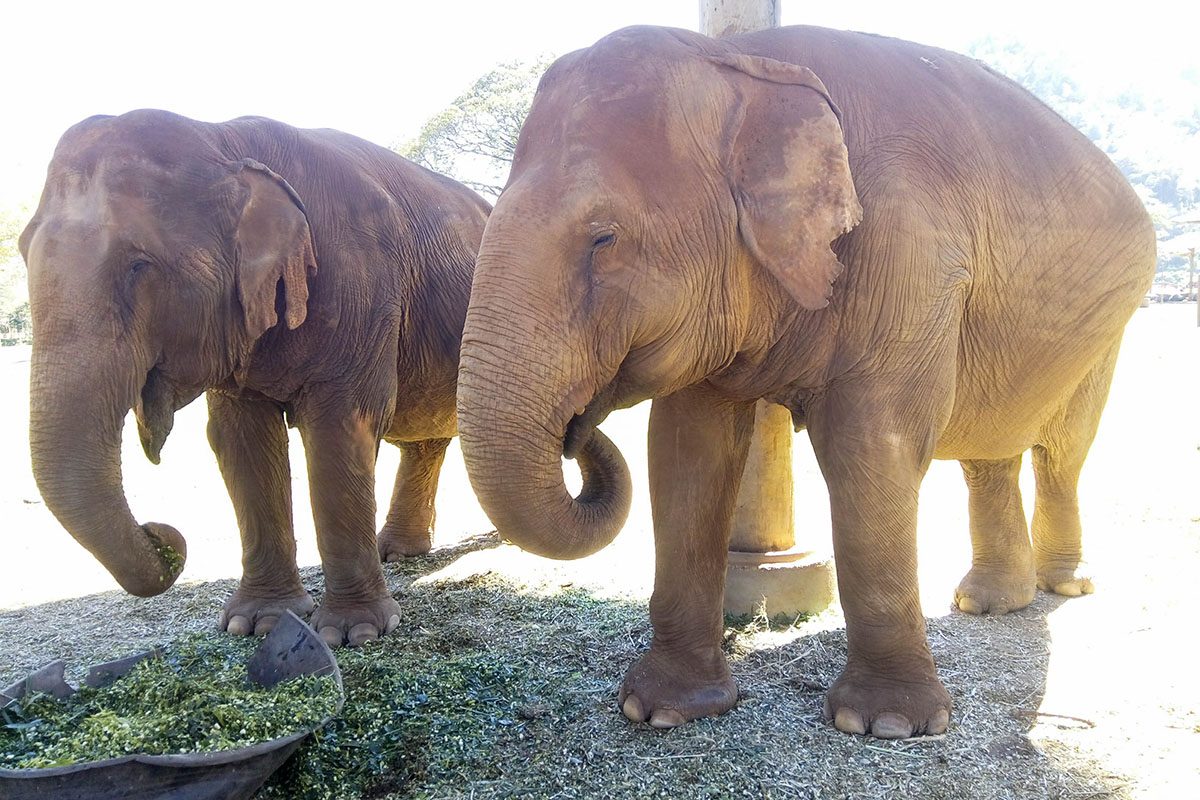
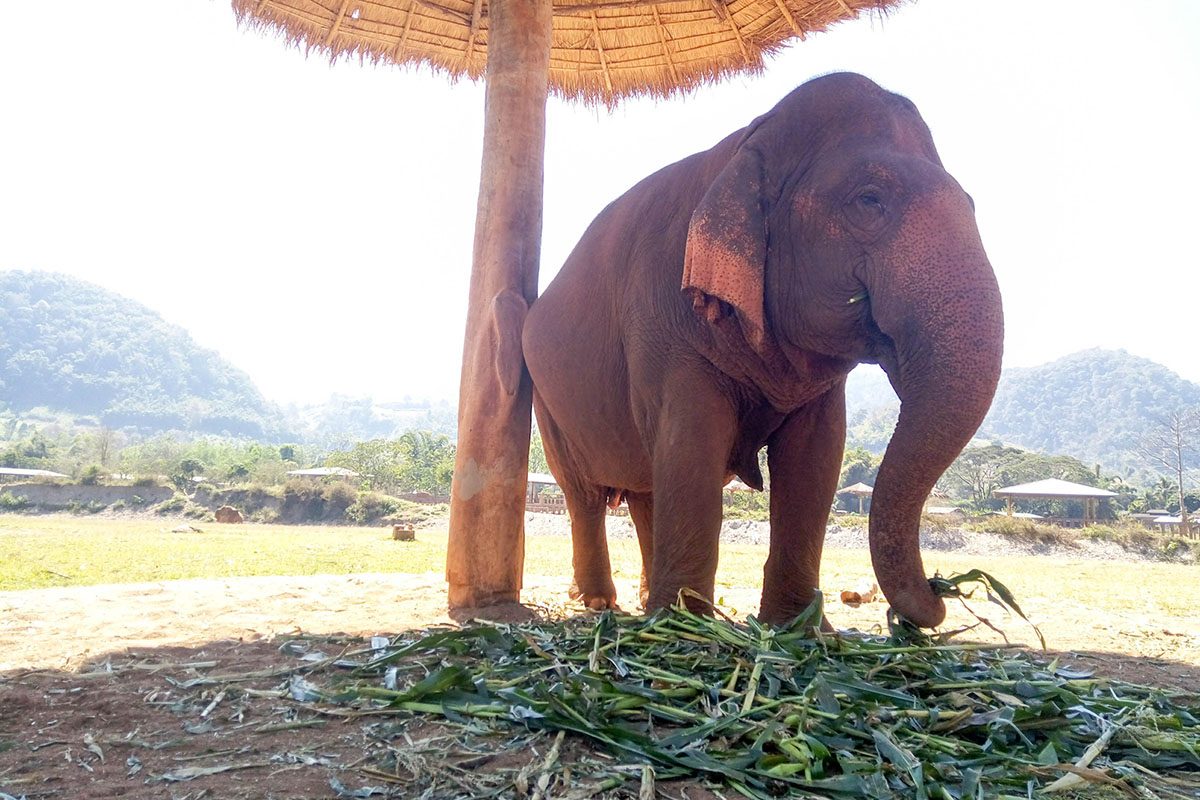
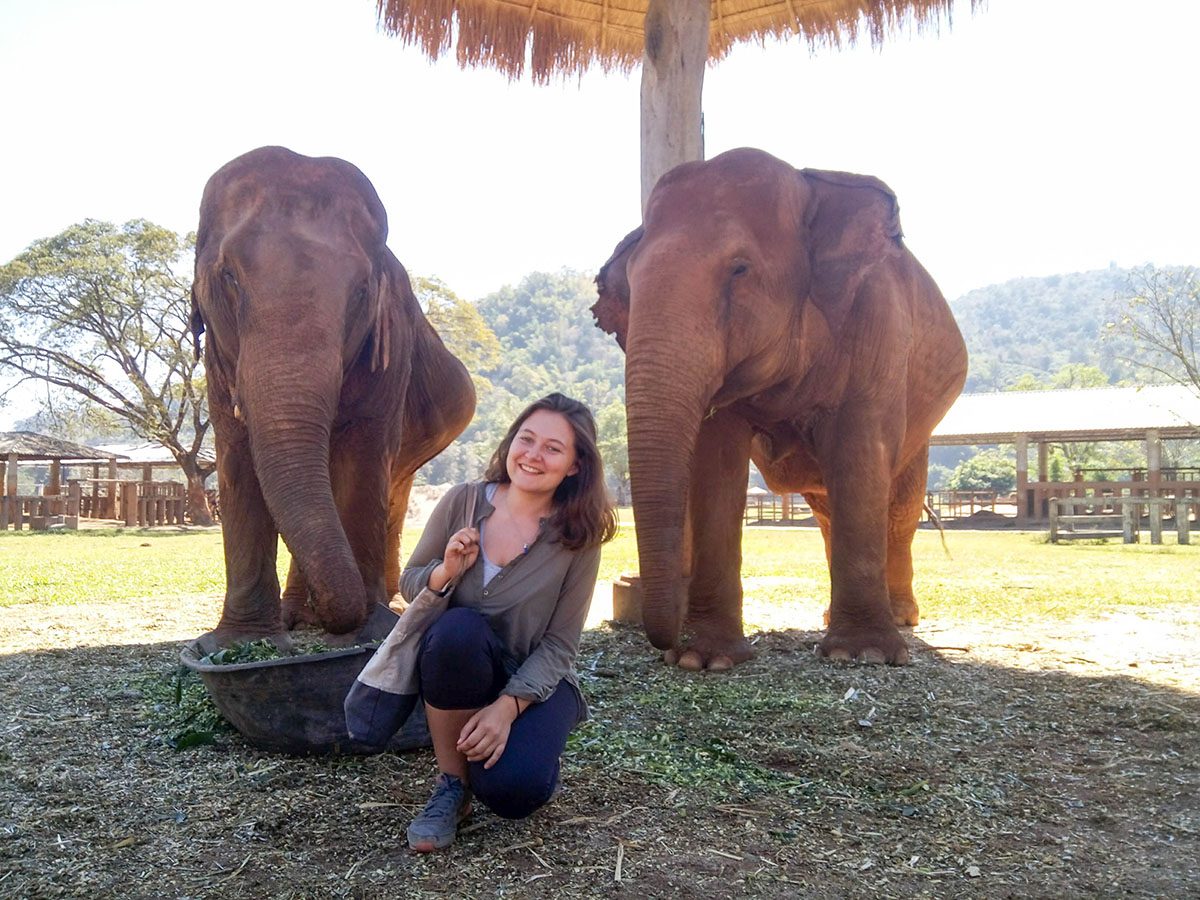
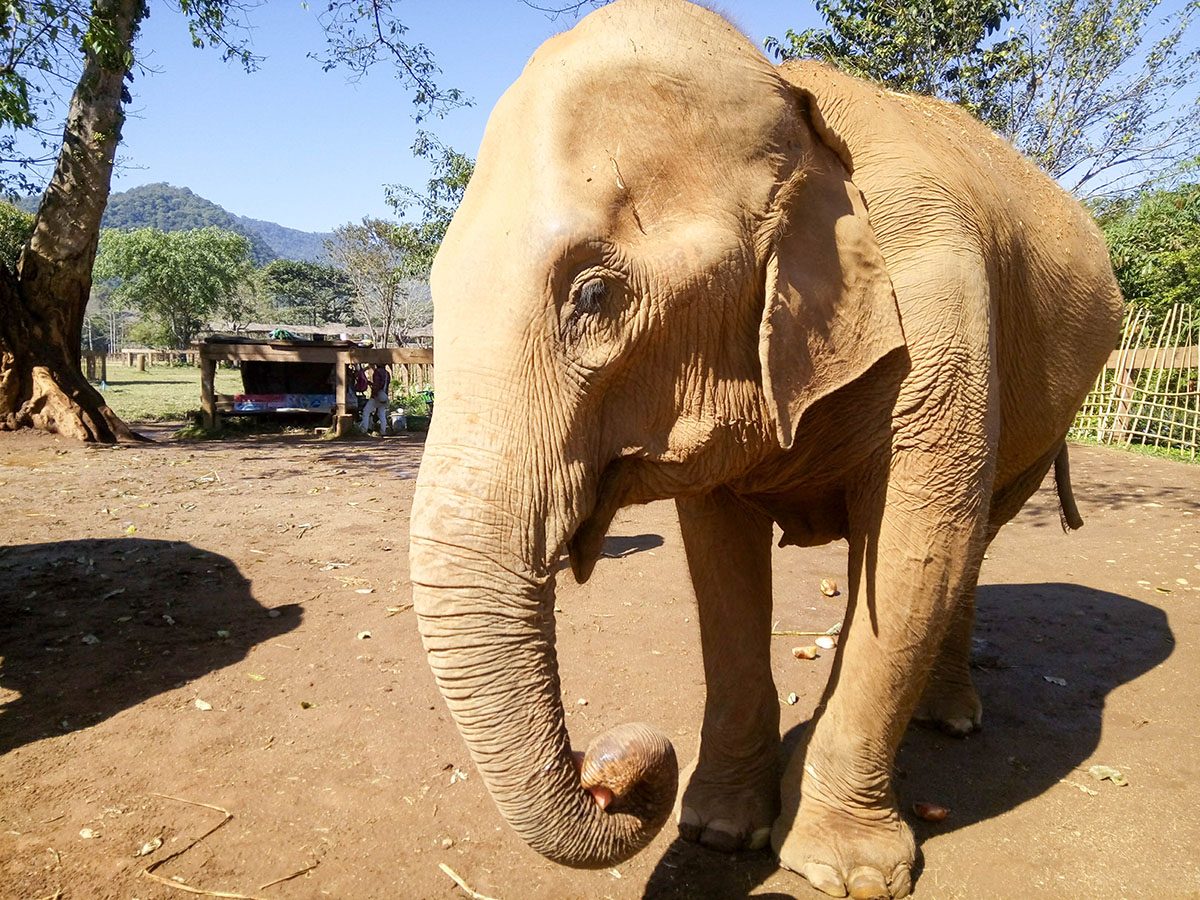
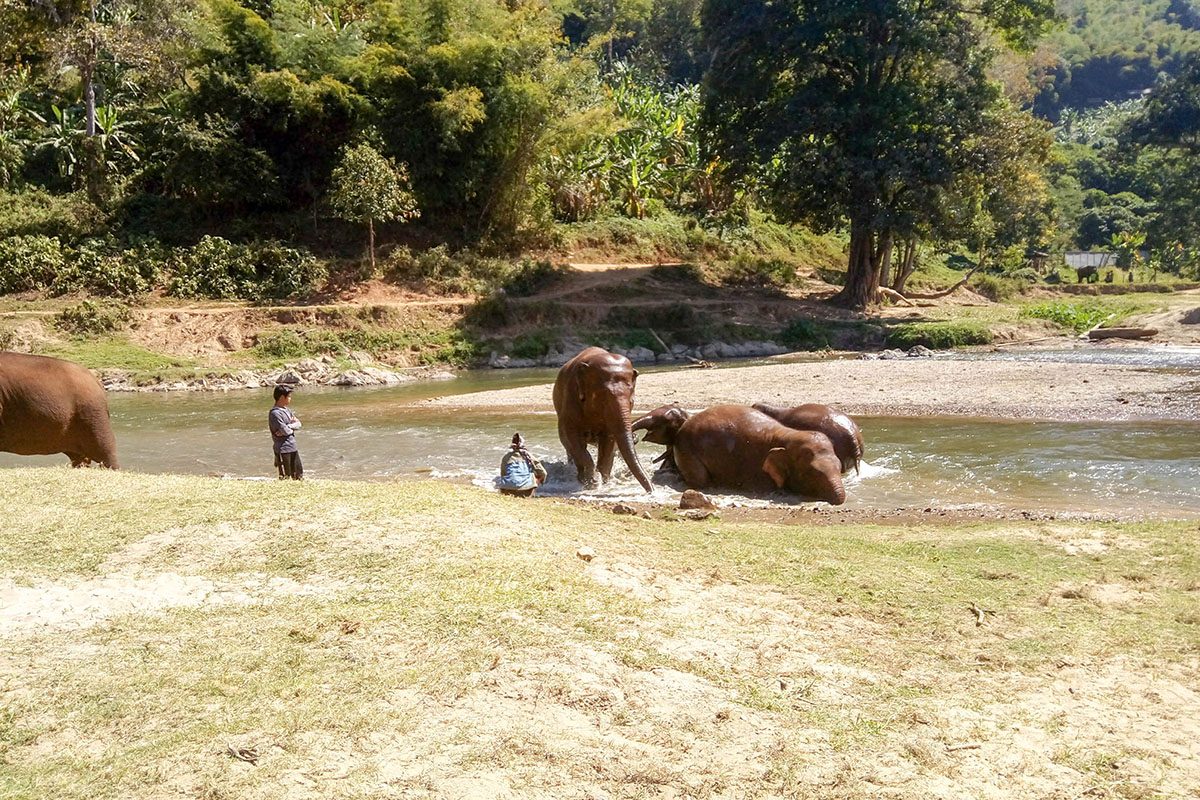

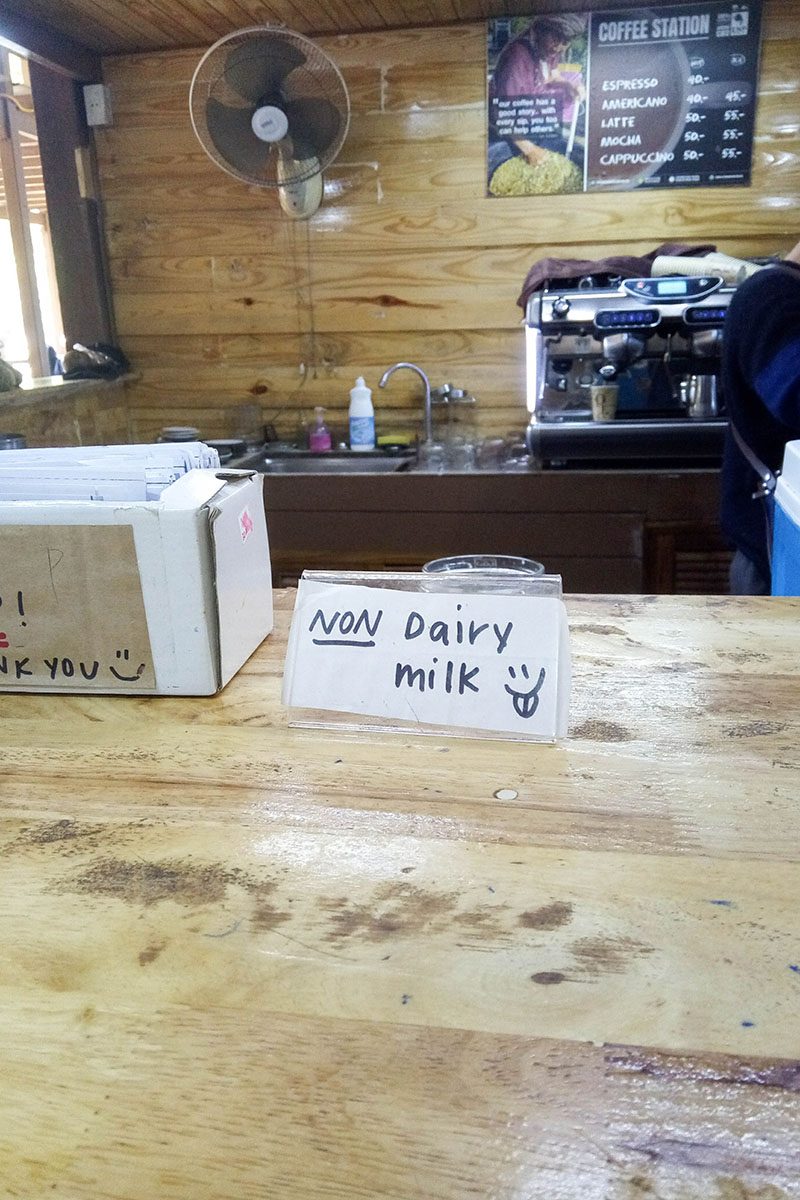
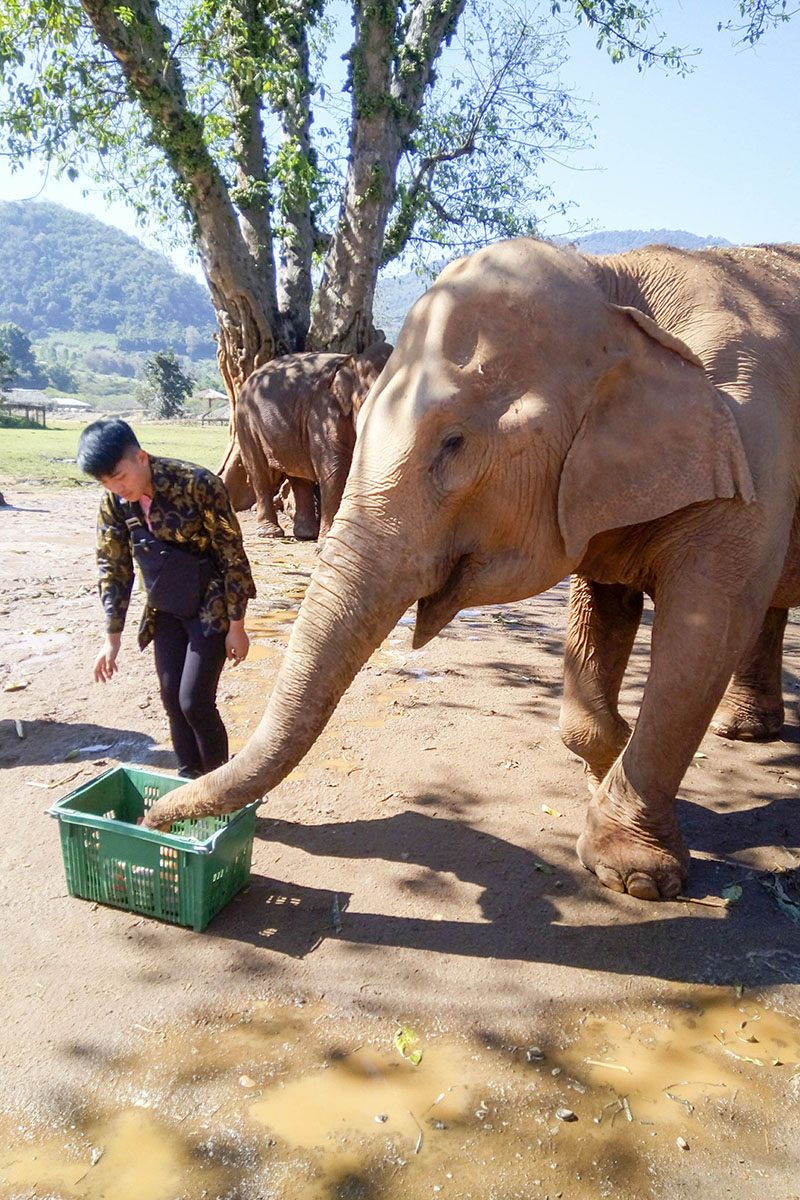

This is great! I’m headed to Thailand in November and wanted to see the elephants but was at odds with my ethical responsibility. Thanks for this!
Thanks for this great review! I am currently planning my travels to Chiang Mai and am collection information about these sanctuaries and if it’s really ok to support them. Your article is one of the ones that helped me a lot. 🙂
Great to hear 🙂
What an amazing review of the natural park, I am planning to bring my kids to this park. After reading this blog I am pretty sure that this park is safe and best place for the kids enjoyment
Thanks for this! I’ve been doing my research and was getting dismayed by how many “sanctuaries” aren’t safe for the elephants at all. I’m happy to give my money to an ethical option that is actually helping these animals out. I can’t wait to visit them in the fall!